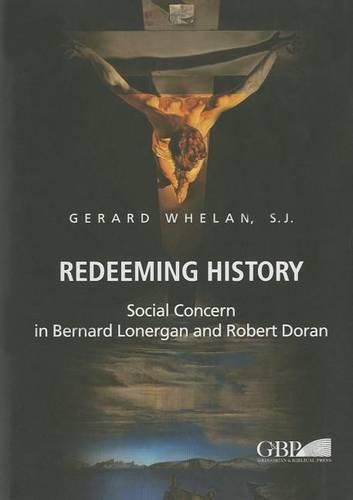Readings Newsletter
Become a Readings Member to make your shopping experience even easier.
Sign in or sign up for free!
You’re not far away from qualifying for FREE standard shipping within Australia
You’ve qualified for FREE standard shipping within Australia
The cart is loading…






This book begins: Bernard Lonergan’s social concern took root in 1930 and remained a key factor guiding his intellectual career until he died in 1984. Succeeding chapters offer a biographical overview of Lonergan’s intellectual development and his interest in articulating how we are called to collaborate with God’s plan to redeem history. The author also suggests that there are two reasons why many students of Lonergan’s thought are not aware of this social concern. First, early in his career Lonergan made a strategic decision to address foundational questions in philosophy and theological method that constituted what he understood to be a withdrawal from practicality for the sake of practicality. This decision would lead him to write two books that would make him famous. Insight: A study of Human Understanding (1957) and Method in Theology (1975), but in which his social concern is not immediately evident. Second, by the end of Lonergan’s life his exploration of foundational reflection and to make explicit how it should be applied to issues of social concern. The author concentrates on Doran’s Theology and Dialectics of History (1990) and notes how Doran enters into a nuanced engagement with theologies of liberation of Latin America, offers an innovative explanation of an option for the poor; and explains how the situation should be a source of systematic theology. The final chapter offers examples of Doran’s theological method being applied in different ways, including by the author when he was pastor of a poor parish in Nairobi. The book concludes with comments on convergences between the thought of Lonergan, Doran, and Pope Francis.
$9.00 standard shipping within Australia
FREE standard shipping within Australia for orders over $100.00
Express & International shipping calculated at checkout
This book begins: Bernard Lonergan’s social concern took root in 1930 and remained a key factor guiding his intellectual career until he died in 1984. Succeeding chapters offer a biographical overview of Lonergan’s intellectual development and his interest in articulating how we are called to collaborate with God’s plan to redeem history. The author also suggests that there are two reasons why many students of Lonergan’s thought are not aware of this social concern. First, early in his career Lonergan made a strategic decision to address foundational questions in philosophy and theological method that constituted what he understood to be a withdrawal from practicality for the sake of practicality. This decision would lead him to write two books that would make him famous. Insight: A study of Human Understanding (1957) and Method in Theology (1975), but in which his social concern is not immediately evident. Second, by the end of Lonergan’s life his exploration of foundational reflection and to make explicit how it should be applied to issues of social concern. The author concentrates on Doran’s Theology and Dialectics of History (1990) and notes how Doran enters into a nuanced engagement with theologies of liberation of Latin America, offers an innovative explanation of an option for the poor; and explains how the situation should be a source of systematic theology. The final chapter offers examples of Doran’s theological method being applied in different ways, including by the author when he was pastor of a poor parish in Nairobi. The book concludes with comments on convergences between the thought of Lonergan, Doran, and Pope Francis.